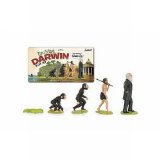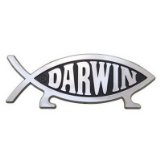What Did Charles Darwin Discover?
When Charles Darwin was 22 years old, he volunteered to be the naturalist aboard the HMS Beagle for its second survey voyage. The voyage lasted five years during which time Darwin made numerous observations that he detailed in his journal. What he discovered during this voyage saw Darwin begin changing his views and he began developing his theory of evolution by natural selection.
By the end of the expedition, he was widely known as a geologist and fossil collector. He organized his journal writings which covered biology, geology and anthropology and demonstrated Darwin's keen powers of observation. Darwin then published his findings in a book titled The Voyage of the Beagle.
With his success as an author for The Voyage of the Beagle, Darwin published his first major scientific book in 1842, The Structure and Distribution of Coral Reefs, setting out his theory of the formation of coral atolls.
In 1846, he completed his third geological book, and turned from supervising the publication of expert reports on the discoveries from the voyage to examining barnacle specimens himself. This led to an eight year study, making use of his theory of evolution to find unknown relationships between the many species of barnacle and establishing his expertise as a biologist.
By the beginning of 1856, Darwin's theory had him investigating whether eggs and seeds could survive travel across seawater to spread species across oceans.
Darwin's theory of evolution through natural selection was finally publicly disclosed when with the publication of his book On the Origin of Species at the end of 1859. His book proved to be unexpectedly popular, immediately selling out of all available printed copies.
Now that the background of what led up to the publication of Darwin's writings has been sufficiently laid out, to answer the question of what did Charles Darwin discover, one really only needs to read his theory simply stated in the introduction of his book On the Origin of Species:
As many more individuals of each species are born than can possibly survive; and as, consequently, there is a frequently recurring struggle for existence, it follows that any being, if it vary however slightly in any manner profitable to itself, under the complex and sometimes varying conditions of life, will have a better chance of surviving, and thus be naturally selected. From the strong principle of inheritance, any selected variety will tend to propagate its new and modified form.




